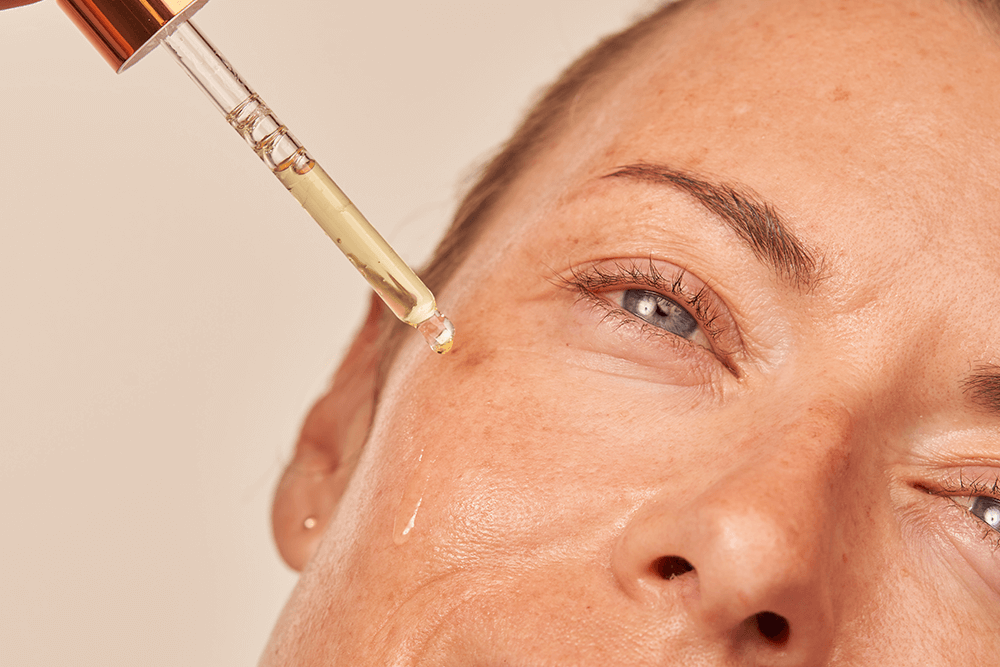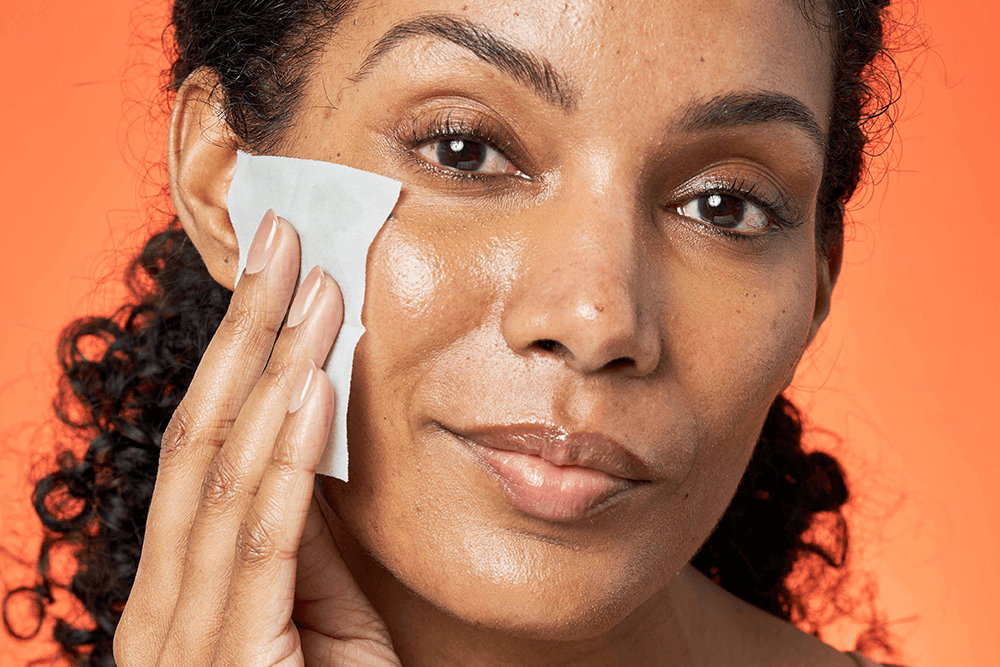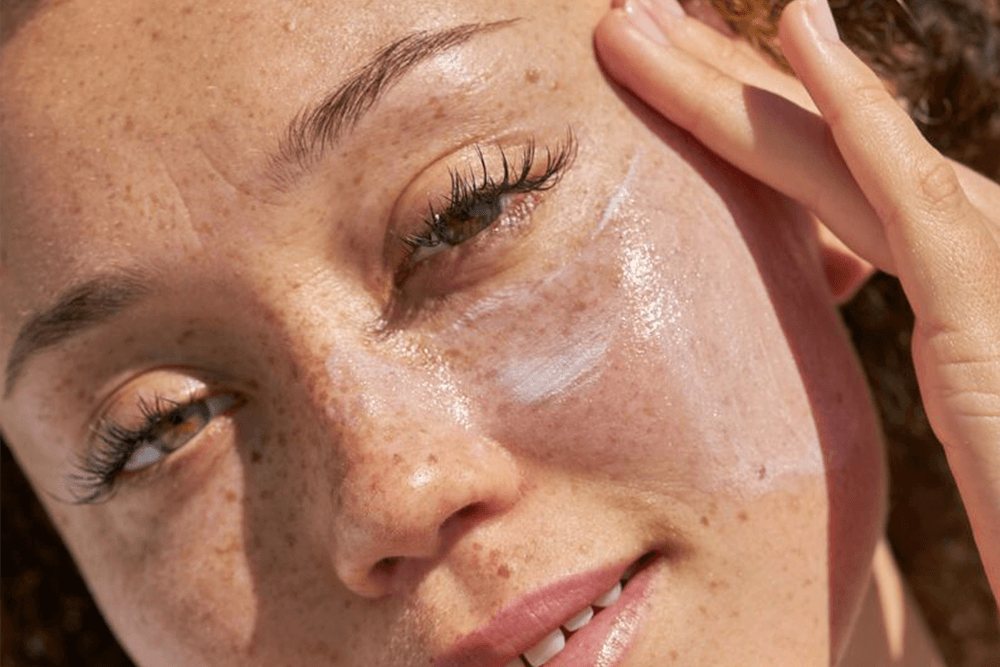The+Source
Vitamin C is a vital nutrient that plays a key role in growth, development and repair in the body. In the skin, vitamin C is essential for stimulating collagen synthesis and assisting in antioxidant protection. This means brighter, firmer, smoother, more even-looking skin. Nearly everyone can benefit from adding vitamin C to their skincare regimen but not all vitamin C treatments are created equal. From the quality of ingredients to product formulation, vitamin C can be a tricky ingredient to stabilize and deliver deep into the skin. Read on to de-bunk every myth you ever heard about vitamin C.
MYTH: All vitamin C treatments are equal
Both the type of vitamin C and the product formulation as a whole are key to ensuring a product is efficacious. Vitamin C has a delicate molecular structure so without the right formulation, it can become destabilized & oxidize. This means that the vitamin C will lose its potency and your skin misses out on the benefits. Next, it must have a proper delivery system to be absorbed into the skin. Stabilizing and delivering vitamin C in a way that is proven to be effective gives the best results. Remember, these two processes are connected. Most importantly, rely on clinically studied vitamin C products that are proven to do what they promise.
MYTH: The higher concentration of Vitamin C, the better it performs
More isn’t always better. In the vase of vitamin C, a higher concentration can equal more irritation. Stick to a serum with 10% to 15% vitamin C. This concentration is proven to get into the skin and, when combined with soothing ingredients that strengthen the moisture barrier, you won’t see any irritation.
MYTH: Melanated skin should not use vitamin C
Melanin is the pigment our body produces that is responsible for our skin, hair and eye color. The more melanin, the darker the color tone. When the skin is injured through free radical exposure aka sun damage, it responds by sending pigment production into overdrive. For those with darker skin tones, this injury response can be exacerbated because there is more melanin present in the skin. However, with topical vitamin c, we can disrupt this overactive response. Vitamin C works to inhibit the enzyme that controls melanin production, stopping the transfer of melanin and reducing inflammation from free radical activity. L-ascorbic acid specifically provides photoprotection from UVA and UVB rays by neutralizing free radical formation which is beneficial for all skin tones.
MYTH: Sensitive skin types can’t use vitamin C
Not only is this a myth, but the complete opposite!
Vitamin C has the potential to be irritating at high concentrations. Look for a vitamin C treatment of 15% or lower that is cocktailed with other soothing ingredients, like lactic acid, ceramides and squalene, that not only support the moisture barrier, but also enhance the efficacy of vitamin C. It’s best to look for a vitamin C treatment that uses active and soothing ingredients synergically to deliver results without causing irritation or redness. With the right formula, vitamin C delivers incredible results for sensitive skin by reducing discoloration, redness and inflammation.
MYTH: Skin can build a tolerance to vitamin C
You don’t need to swap out your vitamin C treatment because it does not become less effective the longer you use it. In fact, your skin likes consistency. Find a vitamin C product that works for you and stick with it – this will give you the best results.
MYTH: Vitamin C makes skin sensitive to sun exposure
Vitamin C is an antioxidant, meaning it helps to neutralize oxidative stress in the skin from UVA/UVB free radical activity. Free radicals are unstable, charged electrons that damage collagen structure. We become exposed to free radicals through pollution, inflammation, alcohol, cigarettes, and stress, but above all, sun exposure. Application of a daily vitamin C serum protects skin from the sun and repairs existing sun damage. It is recommended to apply vitamin C in the morning so you can take advantage of its protective properties all day long.
MYTH: Vitamin C should only be applied at night
It is beneficial to apply topical antioxidants, like vitamin C, during the day when exposure to free radicals from the sun and pollution are at their peak. This will actively neutralize free radical activity, preventing damage before it happens. Vitamin C can be applied at night if that is a personal preference, however, morning application boosts free radical protection throughout the day.
MYTH: Vitamin C permanently stains the skin
Vitamin C does indeed have an orange/brown color and, in some formulations, this color can linger on the skin. However, vitamin C does not stain or permanently discolor the skin. Vitamin C is a common ingredient in self-tanning products because it adds natural color temporarily.
MYTH: Ingesting Vitamin C provides substantial skin benefits
The amount of vitamin C you would need to ingest to get the same benefits as topical application would be toxic. We calculated it*… and you would need to consume 18,750 oranges every single day. The best route for skin results is topical application while supporting the use of topicals with a well-rounded diet.
MYTH: Retinol cannot be used with vitamin C
Retinol and vitamin C are two of the most clinically studied skincare ingredients. When you combine them in the same skincare regimen, you will see transformative results. Both retinol and vitamin C work to stimulate collagen production – the key to healthy, vibrant skin. The secret is to use one in the morning and one at night. It is best to apply vitamin C in the morning when sun exposure, aka free radical exposure, will be at its peak. Apply retinol in the nighttime when skin repair processes will be ramped up while you sleep.
MYTH: Freckles are naturally occurring, not sun damage.
No one is born with freckles. When skin becomes exposed to UVA/UVB rays, it produces more pigment as a defense mechanism. When a cluster of skin cells are overproducing pigment, it appears as a dark spot or freckle. Freckles are harmless, but sun damage can increase the risk of skin cancers, such as melanoma. Freckles and sunspots can be easy to keep an eye on with annual skin cancer checks with your dermatologist. Melanoma is highly treatable when caught early on.
Read more about how you can prevent melanoma for you and your loved ones here.
Discover Dr. Dennis Gross Skincare for All Your Skincare Needs
For more skincare tips from the experts at Dr. Dennis Gross, check out our blog’s newest content today.
Shop the collection of Dr. Dennis Gross bestselling skincare, including our Vitamin C Lactic technology now available.








